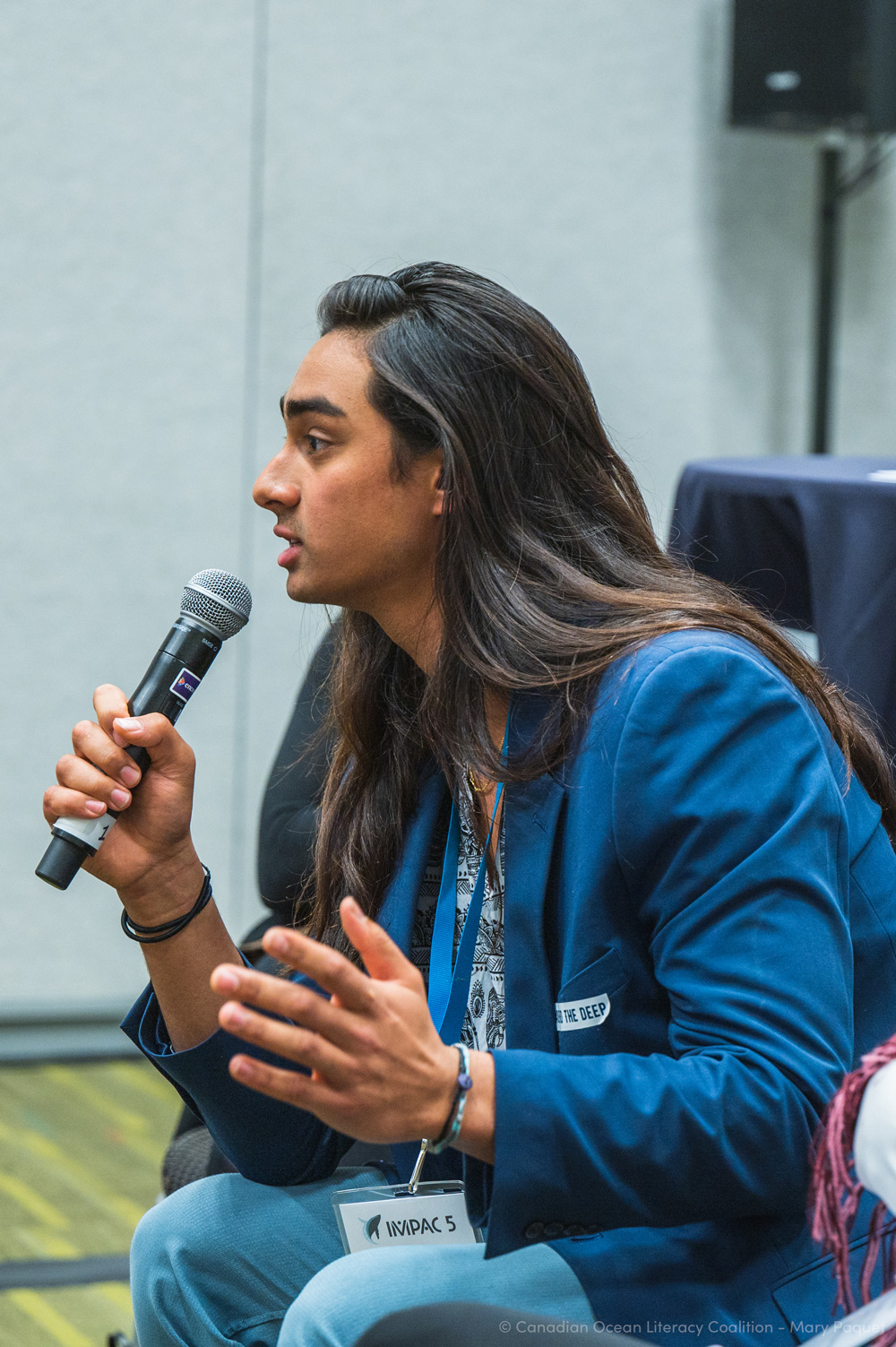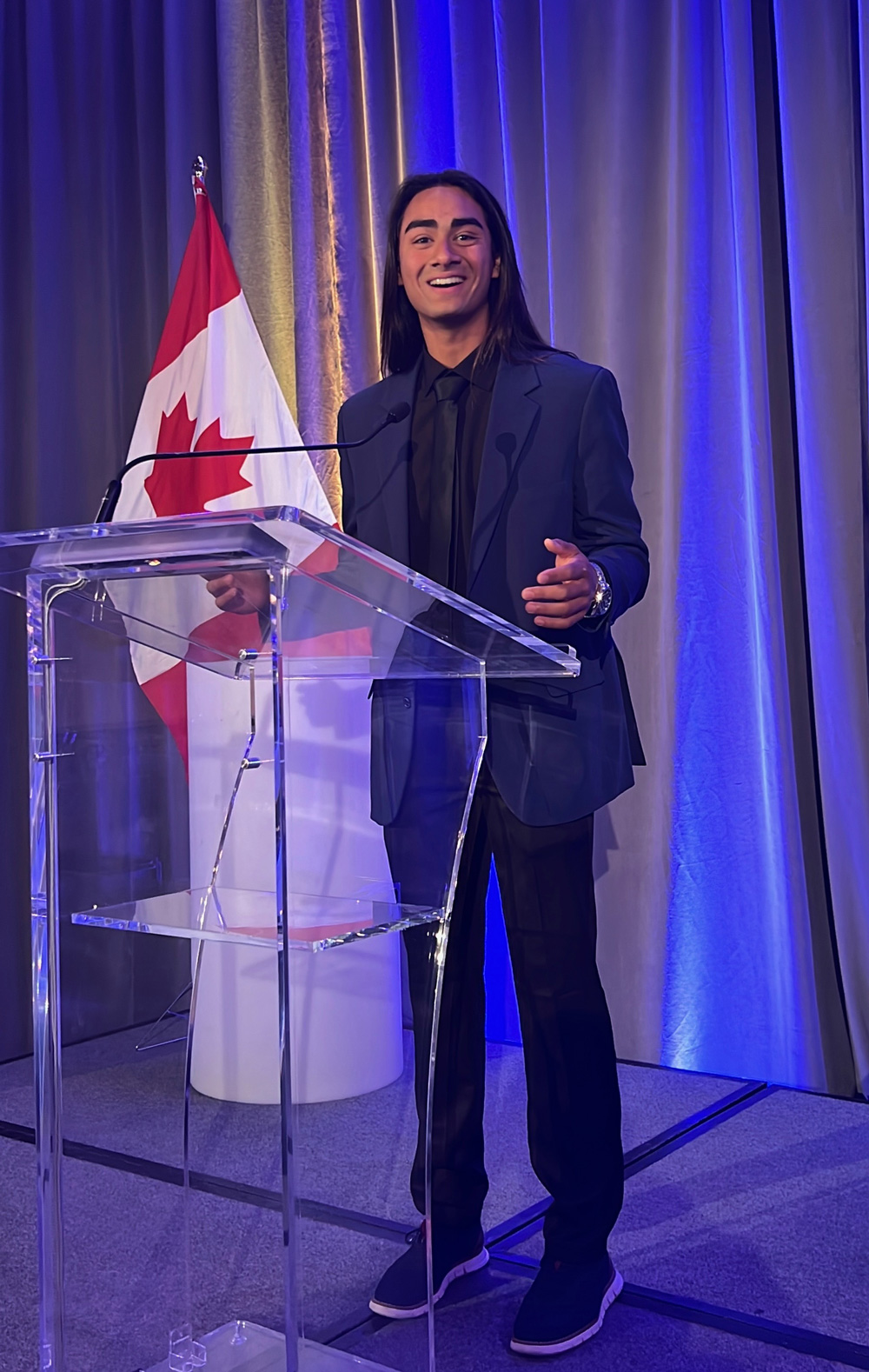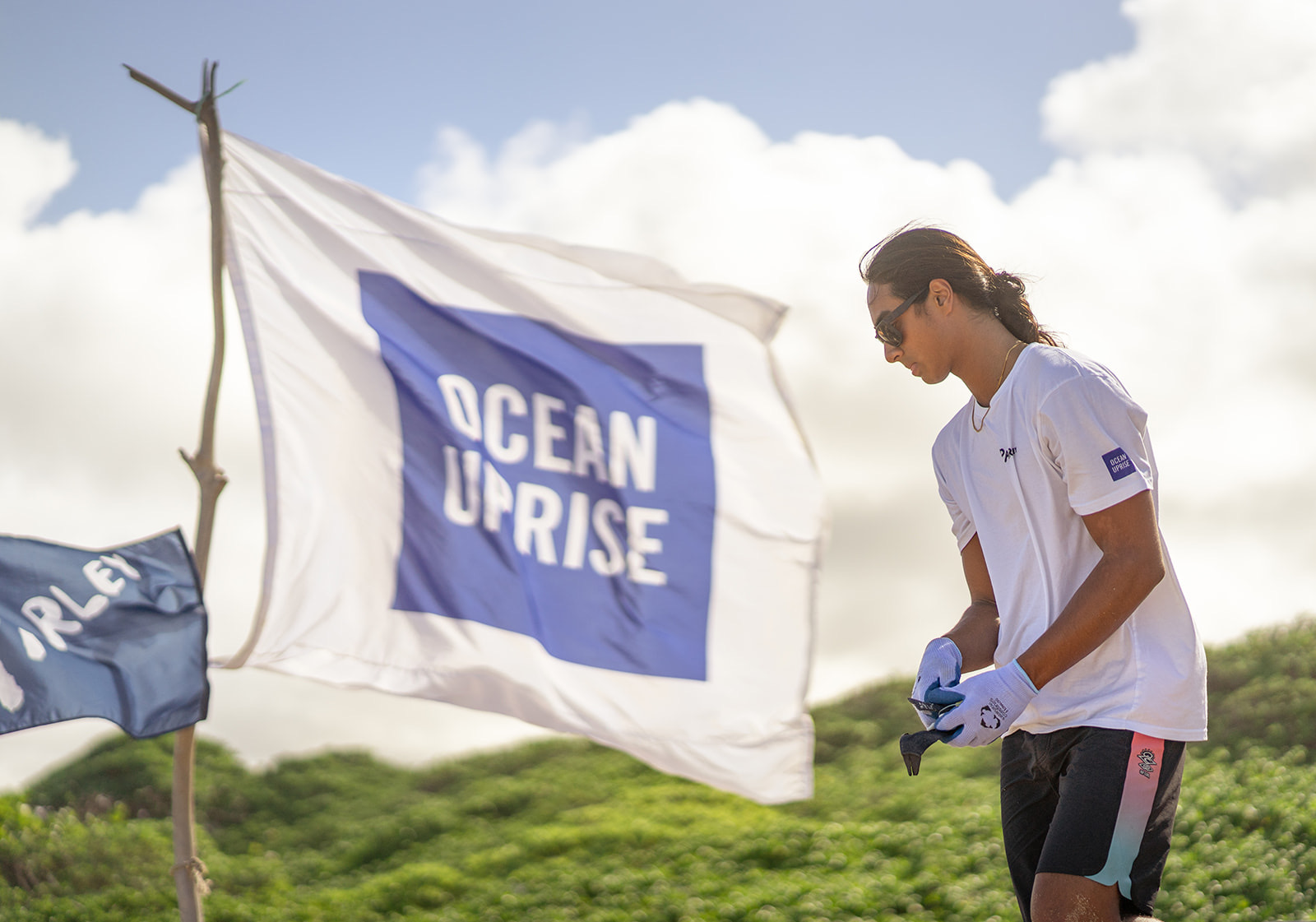
An interview with UBC Sauder student and ocean guardian Bodhi Patil
Related Links
Bodhi Patil has lived on three continents, but he’s never been far from the sea. He’s spent countless hours exploring the Pacific, Atlantic, Caribbean, and Indian Ocean and the Red Sea. To Patil, the world’s oceans aren’t just a source of joy, they also serve as a vital blue lung for planet earth. His passion for finding solutions to keep the oceans healthy led him to pursue a UBC Bachelor + Master of Management Dual Degree (B+MM) – studying oceanography, climate justice, and business.
-
Q: What is your connection to the water?
A: "Water has been the one constant in my life, amongst so much change. Over the past 20 years, I’ve lived in four countries across three continents. For me, aquatic ecosystems across Asia, the Middle East, Africa, and North America have been fascinating places to play, learn, and grow, but it didn’t take long to realize that what I loved was under threat.
The ocean is not just home to fish and other marine life, it also provides a source of food for billions of people around the world. And it’s the biggest carbon sink on earth. Oceans regulate climate. Ocean health and human health are inextricably connected, which is why we need to address human impacts like warming waters, overfishing, biodiversity loss, and pollution."
-
Q: Can you tell us about some of your recent ocean conservation efforts?
A: "Earlier this year, I organized a delegation of eight UBC students to join me for IMPAC5, the Fifth International Marine Protected Areas Congress that was held in Vancouver. We hosted three networking events and led a media campaign and massive protest in downtown Vancouver to stop deep seabed mining. At the end of the conference, the federal government declared a moratorium on seabed mining projects in Canadian waters. Now, alongside Indigenous leaders, conservation organizations, and industry experts, we’re pushing for a global ban.

In February, Patil spoke at IMPAC5, the Fifth International Marine Protected Areas Congress that took place in Vancouver.
Outside of school, I work part time with the United Nations and several eco-organizations to develop and deliver ocean-climate solutions that range from protecting aquatic ecosystems like mangrove forests, coral reefs, kelp forests and the species that inhabit them, to reducing greenhouse gas emissions and overfishing.I’m a youth ambassador for Sustainable Ocean Alliance and my work involves engaging with policy makers, business leaders, and others about ocean-climate action and why young people should be invited into decision-making spaces. Intergenerational collaboration is key because young people are powerful changemakers. I’m happy to see that businesses and governments are beginning to recognize, fund, and value meaningful youth engagement."
-
Q: You are an environmental activist studying business. How will a business education on top of your Bachelor of Arts help you achieve your goals?
A: "I’ve always had an entrepreneurial mindset and see myself as a solutionist much more than an activist. I founded my first social enterprise called Bodhi’s Light LLC during high school. My goal is to improve the lives of young people by teaching them skills to build a strong body, calm mind, and vibrant spirit. It’s a transformational toolbox that I co-created and it’s rooted in the interconnectedness of environmental and human health.
I’m building on my entrepreneurial skills through the Master of Management (MM) portion of the dual degree, which is perfectly aligned with my vision around coupling sustainability and business. I’m learning new skills, from accounting to organizational behavior, and how to build strong teams to tackle problems and deploy solutions."
I think of my MM as my coral reef. A healthy coral reef attracts all kinds of fish and biodiversity. Laying down a strong business foundation will lead to opportunities and help me achieve my goals.

-
Q: You have a vision for applying entrepreneurship to environmental problems. Can you provide an example?
A: "Yes! Youth-led innovation has created transformative solutions. OnDeck Fisheries AI is a startup created by UBC alum Alexander Dungate that builds AI-powered software to monitor fish catch and bycatch hauled onto fishing vessels. OnDeck is a revolutionary way forward for better fisheries monitoring and a more sustainable industry. I joined the team as Head of Impact. We’ve hired five students in the past few months and plan to further tap into the UBC Sauder community to help us scale.
A second example is Ocean Uprise (OU), a youth organization I co-created, where passionate young leaders from around the world come together to take action to protect our oceans. Our Ocean Guardians lead workshops and events that support ocean-climate literacy. We also offer paid student internships. Over the past three years, our programming has reached 43,000 people worldwide."
-
Q: How can students and the wider UBC Sauder community get involved in ocean conservation?
A: "Humans protect what we love, so it starts by connecting with nature. Luckily at UBC, nature is all around us, so get out there!
Second, we can learn from Indigenous peoples. According to a 2008 World Bank report, Indigenous peoples are the stewards of 80 per cent of global biodiversity. We can listen more deeply and learn from the coastal First Nations of B.C. We must listen to learn, learn to understand, and understand to apply lessons and wisdom to all we do in furthering ocean stewardship.
Third, students can learn from companies like OnDeck Fisheries AI, Sankari Studios, Symbrosia Seaweed, and other leading innovators. These startups are hiring young people with business skills. According to the OECD and World Bank, the greatest number of new jobs will come from the blue economy. A great resource is Work On Climate.
I think UBC Sauder students can be an important bridge between business and sustainability. The lasting businesses of tomorrow will be the ones with environmental sustainability at their core and these retrofits are in demand today. This is what our generation is demanding, that’s where policy is heading, and it’s the future we need if we’re going to survive on this planet."
